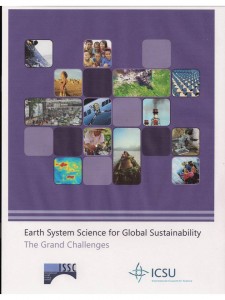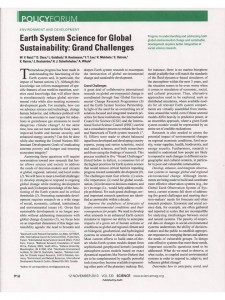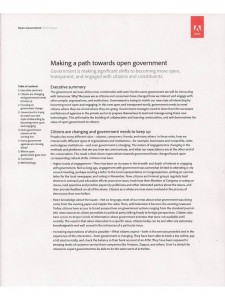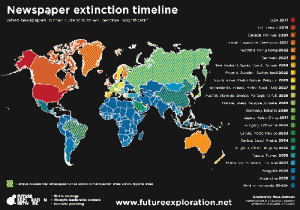
The International Council for Science (ICSU) is spearheading a consultative Visioning Process, in cooperation with the International Social Science Council (ISSC), to explore options and propose implementation steps for a holistic strategy on Earth system research. Five Grand Challenges were identified during step 1 of the process. If addressed in the next decade, these Grand Challenges will deliver knowledge to enable sustainable development, poverty eradication, and environmental protection in the face of global change.
The details of the Grand Challenges are contained in the document ‘Earth System Science for Global Sustainability: The Grand Challenges’, representing input from many individuals and institutions.

INTERNATIONAL COUNCIL FOR SCIENCE – PRESS RELEASE
Thursday 11 November 2010
Scientific Grand Challenges identified to address global sustainability
Paris, France—The international scientific community has identified five Grand Challenges that, if addressed in the next decade, will deliver knowledge to enable sustainable development, poverty eradication, and environmental protection in the face of global change. The Grand Challenges for Earth system science, published today, are the result of broad consultation as part of a visioning process spearheaded by the International Council for Science (ICSU) in cooperation with the International Social Science Council (ISSC).
The consultation highlighted the need for research that integrates our understanding of the functioning of the Earth system—and its critical thresholds—with global environmental change and socio-economic development.
The five Grand Challenges are:
- Forecasting—Improve the usefulness of forecasts of future environmental conditions and their consequences for people.
- Observing—Develop, enhance and integrate the observation systems needed to manage global and regional environmental change.
- Confining—Determine how to anticipate, recognize, avoid and manage disruptive global environmental change.
- Responding—Determine what institutional, economic and behavioural changes can enable effective steps toward global sustainability.
- Innovating—Encourage innovation (coupled with sound mechanisms for evaluation) in developing technological, policy and social responses to achieve global sustainability.
Continue reading “Reference: Earth System Science for Global Sustainability–Grand Challenges”









